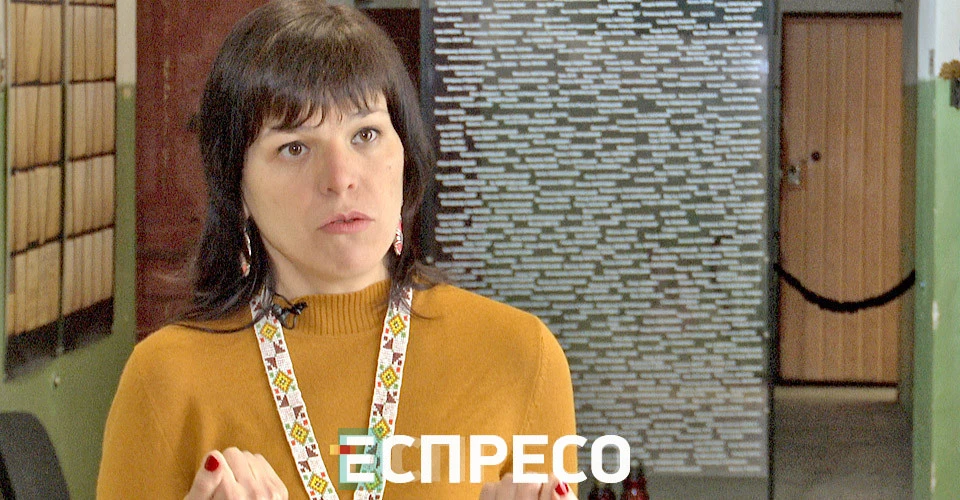
“We need to talk about traumatic moments in history, not remain silent," said historian Olesya Isayuk.
Today's Russian-Ukrainian war echoes previous stages of Ukrainian people's struggle for independence. And here there are many coincidences - even at the level of places and sequences of events.
This is emphasized by scientist, Doctor of Historical Sciences Olesya Isayuk in a conversation with "Espresso. West."
"We should not even look at UPA, which is more connected with the western regions of Ukraine. We should also mention the first liberation struggles, look at Hetmanate and Khmelnytsky region. Konotop woke up there, and Kruty is a glorious place in Ukrainian history.
And Kharkiv. But not Kharkiv that is the "first capital" with all this Soviet myth, but, in fact, Kharkiv of the first liberation struggles, Kharkiv that was caught 50 by 50 by Bagryany and Shevelyov. Even mood can be captured, at least if you read Garden of Gethsemane.
Holodomor could sew up companies in Western Ukraine as well.
In order to assess trends, either in self-identification or in attitude towards Russians, it is necessary to remember historical conditions in which people were formed, - Olesya Isayuk is convinced. In addition, she emphasizes that western regions spent less time under Soviet occupation, there was no Holodomor, and occupying authorities feared specter of Ukrainian insurgent army, because at one time it hurt Muscovites.
When we talk about difference between central, eastern or western Ukraine, we need to understand two things. First, we had "councils" for 40 years, and they - as many as 70. This means that in 90's there were still many who remembered arrival of these "second councils" very well.
Second, residents of western regions did not survive Holodomor. If there was something like that here, it would sew mouth tight.
I was once interested in the fact that on anniversary of Holodomor came memories (or rather memories from memories), where my generation has already retold how their relatives quietly told them about the terrible events. It started more actively in 2016. Why? Because in 2016 it became clear that our army gave them teeth, it became clear that we can repel them, "- explains the historian.
Consciousness of the strength of one's own army gave a sense of security before return of horror that Ukrainians experienced through the fault of Moscow in twentieth century. And not just security, but a sense of reality and success in resisting aggressor - precisely because of what led Holodomor, repression, deportation. This feeling upset company almost literally - subconscious, wounded by memories of violence, it became clear that "it is possible".
It is arithmetic difference between duration and brutality of regime's presence that explains mental differences between conventional "West" and the "East": In area of current Lontsky Prison Museum, there was KGB, police, they tried to give their apartments and keep everyone together, they lived in fact like in a besieged fortress.
For us, people of Western Ukraine, this is so normal that we can give them a decent rebuff - after proclamation of Independence.
Psychological reaction of victims of Russification is identical to that of victims of violence
Olesya Isayuk notes that the language issue of residents of eastern regions of Ukraine should be raised. But it is worth doing without unnecessary accusations, remembering conditions under which the Russian-speaking of these regions was established
"We ask, say, residents of Donbass - why don't you speak Ukrainian even now, during the war, because that's how you equate yourself with Muscovites? So in fact we put them at a crossroads to some extent. is acquired, under threat of violence.
And secondly, it is violence that leaves such an association with abuser. And if rapist also used collective responsibility (and he used it - let's remember the same deportations to Siberia), then opposite reaction begins. This is when you try to break away from those who are not just fighting. and clearly demonstrates its identity. The identity that rapist tried to destroy.
We will have to talk about this for a long time. Because in fact, we put them at a crossroads - between their identity and their security. To some extent, we unconsciously repeat with best intentions what Bolsheviks founded for them. But tragedy is that neither we nor they are aware of this, let alone understanding. Because there is no dialogue, both of them climb on "embrasure", starting conversation with wrong and wrong, "- continues Ms. Olesya.
In particular, she emphasizes that people who are now beginning to discuss language or self-identification are "coming in" from all sides. This is because some get into traumatic moments of others.
"Yes, you bring them back to a traumatic moment, and trauma is humiliation, powerlessness. There is also traumatic transference - when someone who is a victim of an abuser is approached by someone who in one way or another takes responsibility to release victim from it. And in the eyes of a victim, rapist is strong and powerful, because he did this to us, and she could not resist him. It is said that inflated demands are social infantilism, but traumatic transference should not be forgotten.
It is necessary to talk about it, but unfortunately, few people talk about it. Psychologists speak when it comes to gender-based violence. When we talk about whole groups of psychological violence, we just can't do without psychologists. You need to have knowledge about genocidal studies, about postcolonial studies. There are things that are not taught by psychologists, but only by historians. Therefore, it may be easier for a historian to master a part of psychology than for a psychologist to study three areas at once - history, political science and culturology, "says Olesya Isayuk.
Therefore, direct claims against people whose parents themselves have been Russified or have lost some of their identity are not effective, says historian. This is because survival pressure depends on how quickly you can adjust to this violence. Therefore, those who know how to adapt better are more likely to survive, give offspring and pass on manner of behavior. Even in conditions of USSR, those who sat quietly, didn’t talk much and didn’t show initiative had best chance of survival. And also those who became Russified. Now, says Isayuk, we just need to demonstrate what such behavior leads to.
"I said in second week of the war - look what they create, and you will understand the conditions in which they themselves live for centuries. They grew up in it. So now, when we look at freaks of Russian army, it is worth thinking about how Russians formed as a nation. And is it even worth looking in that direction, " scientist summed up.
- News














































